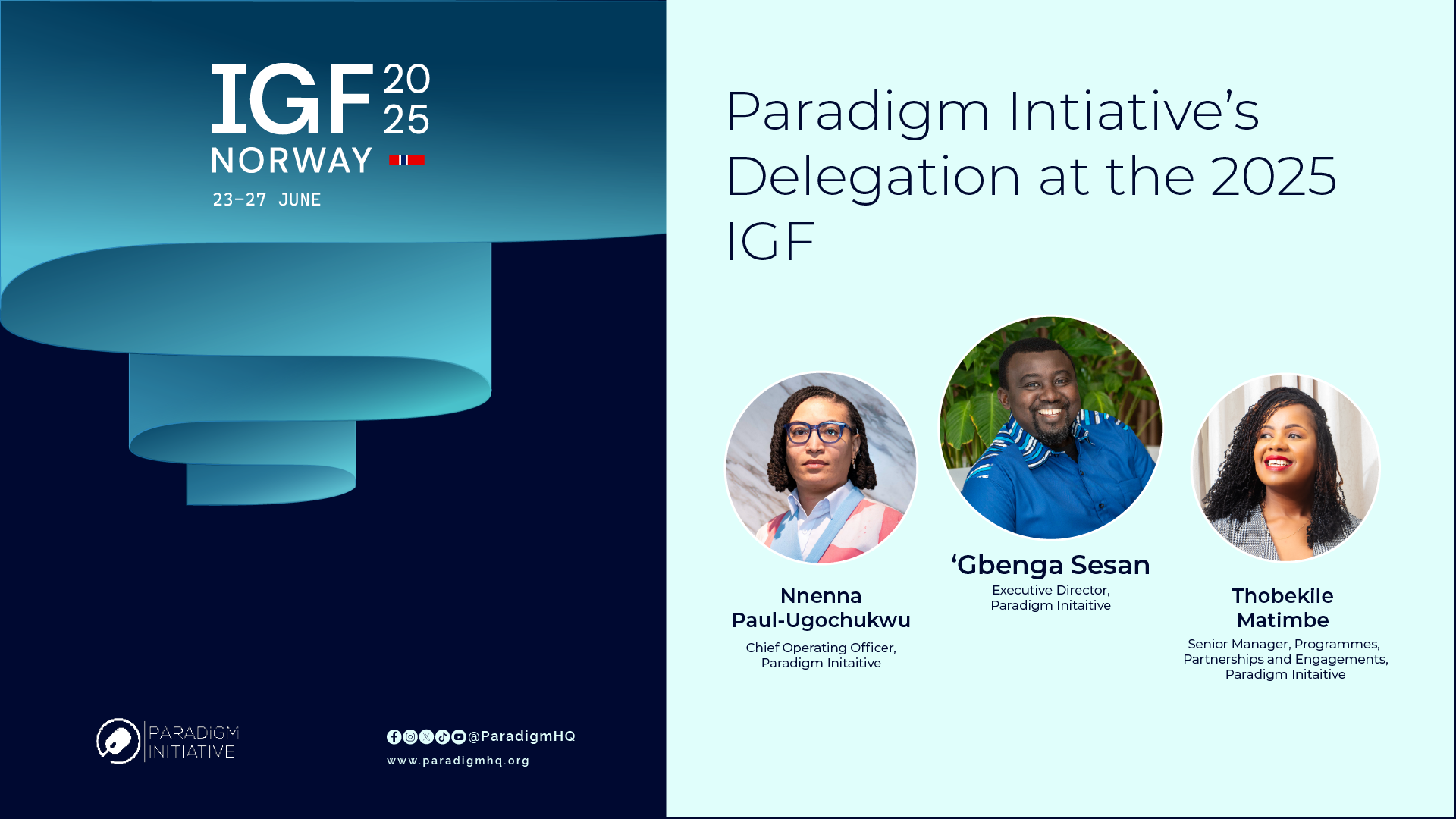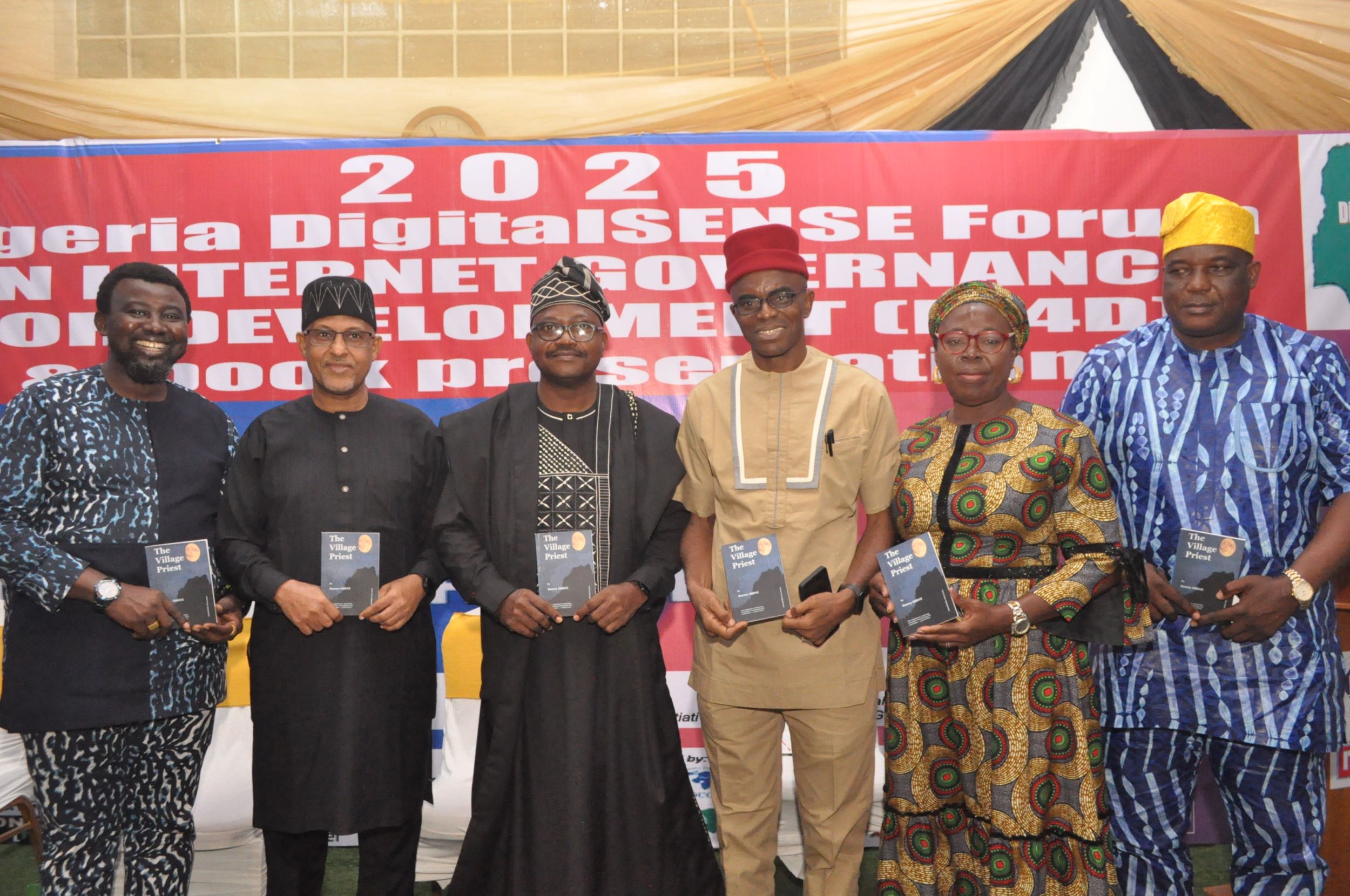Telecom
Danbatta Lists Benefits of Digital Literacy to Socio-economic Development

Prof. Umar Garba Danbatta, executive vice-chairman and chief executive officer of the Nigerian Communications Commission (NCC),has identified major benefits in promoting digital literacy in the country.

Danbatta disclosed this while delivering the first Annual Lecture of the Bichi Emirate titled, “Digital Literacy as a Veritable Tool for Social and Economic Transformation” in Bichi, Kano State, over the weekend, Danbatta challenged actors in both public and private sectors to key into the programme.
He noted that digital literacy provides the confidence required by individual citizens to utilise digital contents and tools, adding that it also helps citizens to effectively collaborate in creating digital content and becoming innovative problem-solvers within their socio-economic ecosystem.
The EVC pointed out that technological changes have now assumed an unprecedented dimension in pace, scope and depth of impact, emphasizing that harnessing the progress is the surest path for Nigeria in her quest for economic diversification, especially the elevation of 100 million Nigerians out of poverty.
“The policy thrust of President Muhammadu Buhari’s administration in this direction is encapsulated in three key policy documents, namely: Nigeria National Broadband Plan (NNBP) 2020-2025; the National Digital Economy Policy and Strategy (NDEPS) 2010-2030; and, the National Policy on Promotion of Indigenous Content in the Nigerian telecommunications sector, ” Danbatta pointed out.
He said one of the underlying goals of the three policies was the development of the Nigerian economy through digital technology enhancement and increased contribution of the telecom sector to the nation’s Gross Domestic Product (GDP).
In demonstration of its recognition of the importance of digital literacy, Danbatta said that the NCC has, over the years, implemented various programmes to support adoption and application of digital skills in Nigeria.
The programmes, according to him, not only provide the necessary digital tools but also support the provision of digital infrastructure, training, connectivity and other incentives to facilitate the development of digital literacy skills.
Through its Projects Department and the Universal Services Provision Fund (USPF), Danbatta observed that the NCC has been providing interventions such as the School Knowledge Centres (SKC), Wireless Cloud and Base Transceiver Stations (BTS), among others, across the six geo-political zones of the country.
Speaking specifically on NCC’s interventions in Bichi Emirate, Danbatta said that, of the eight local government areas that constitute the Emirate, the Commission has, through the USPF, identified about 1,900 square kilometers of land, populated by 462,222 individuals as unserved.
“In order to cover that gap, the Mobile Network Operators (MNOs) have installed 212 BTS of which 112 are Second Generation (2G)-compliant, 73 are Third Generation (3G) networks and 27 are Fourth Generation/Long Term Evolution (4G/LTE) technology, with all providing broadband connectivity which is the bedrock of digital literacy.
“The USPF has also provided interventions to secondary schools, tertiary institutions and hospitals in the emirate via its SKC, Tertiary Institutions Knowledge Centre as well as E-health initiatives; a total of seven of such projects have, so far, been executed since 2015 on my assumption as the EVC,” he explained.
Speaking further the NCC boss also harped on the Commission’s seven interventions under the Advanced Digital Awareness Programme among others, stressing that all the interventions are in line with NCC’s equitable distribution of projects across all geo-political zones in the country.
In recognition of the need to continue to foster the rapid development and growth of the Nigerian telecommunications marketplace and digital economy, the Commission established the Digital Bridge Institute (DBI) in May 2004.
He noted, however, that since its creation, the Institute has grown to have six campuses, one in each geo-political zone.
These campuses, which are in Abuja, Kano, Lagos, Asaba and Yola have some of the best training facilities and faculties in the country and have provided various training to individuals and corporate organisations, thereby making the Institute an invaluable institution to digital literacy in Nigeria.
Telecom
PIN Pushes for Equitable Digital Governance at World Internet Forum

As the 20th Global Internet Governance Forum (IGF) opens in Lillestrøm, Norway, leading pan-African social enterprise Paradigm Initiative (PIN) is championing grassroots voices in global digital policy discussions.

Running from June 23–27 under the theme “Building Digital Governance Together,” the IGF unites stakeholders from civil society, governments, the private sector, and technical communities to tackle pressing digital issues such as access, AI ethics, surveillance, and content moderation.
The discussions also contribute to the upcoming World Summit on the Information Society (WSIS)+20 review in December 2025.
PIN’s participation comes at a time when digital governance decisions are increasingly shaping the future of billions. “It is essential that grassroots solutions are heard,” said ‘Gbenga Sesan, Executive Director of PIN. “At PIN, we believe that meaningful digital inclusion requires more than just connectivity.
“It demands inclusive, progressive and sustainable policies and frameworks built taking the realities of grassroots stakeholders into consideration.”
Representing PIN at IGF 2025 are Sesan, Chief Operating Officer Nnenna Paul-Ugochukwu, and Senior Manager for Partnerships and Engagements Thobekile Matimbe. They will engage in strategic sessions on topics like connectivity in excluded communities, AI accountability in content moderation, and human rights in emerging tech.
The team will also participate in coordination meetings with partners including Meta, UNESCO, the Freedom Online Coalition, and GPD.
PIN’s presence at the forum underscores its ongoing mission to embed digital rights within grassroots realities and to ensure that global internet governance frameworks are inclusive, accountable, and responsive to the needs of marginalised communities.
Telecom
Remmy Nweke’s “The Village Priest” garners high praise from tech community

Information and Communications Technologies (ICT) stakeholders have applauded the latest in bookshelf by Remmy Nweke, the Village Priest, which was presented at the recently concluded Nigeria DigitalSENSE Africa Forum on Internet Governance for Development (IG4D) in Lagos.

The presentation and review of the book, “The Village Priest” by Ogbuefi Remmy Nweke, largely described as a powerful narrative explored the intersection of tradition and innovation in rural Igboland, received widespread acclaim, with its themes resonating deeply with the event’s focus on ‘Global Digital Compact: Opportunities for Multi-stakeholders in Nigeria.’
The highly anticipated review was delivered by Mr. ‘Gbenga Sesan, Executive Director of Paradigm Initiative (PIN), a renowned social entrepreneur and advocate for digital rights and inclusion in Africa.
Sesan lauded Nweke’s prose fiction for its insightful portrayal of “innovative technology adaptation transforming rural communities,” describing it as “a careful work of cultural documentation, offering not just a story but a chronicle—a record of transition that many rural and even urban African communities continue to live through.”
Sesan’s review highlighted the book’s central character, Ogboo AniEze, the revered chief priest of Ilimefo, whose life is dedicated to preserving his village’s customs. The narrative unfolds as “the village and its people, their traditional practices and strong cultural heritage at the crossroads!” with the arrival of GSM technology—a “strange and mysterious piece of technology” that initially challenges Ogboo AniEze’s traditional views.
The review detailed the chief priest’s journey of reconciliation, from initial fear of GSM eroding cultural heritage to a profound understanding that the technology “also offered opportunities for growth, development, and connection with the wider world.” This transformation leads to a new era of harmony in Ilimefo, where “tradition and modernity coexisted in balance.” The book beautifully illustrates how mobile phones become “a powerful tool for preserving the village’s cultural heritage” and how interfaith collaboration, particularly with Catholic priest Fada Ekie, fosters a “fusion of traditions” and a “new spiritual identity.”
“It teaches us, without preaching,” Sesan concluded, “that true innovation is not in abandoning our roots, but in strengthening them with new tools.”
This year’s Nigeria DigitalSENSE Forum, was presided over by Dr. Jimson Olufuye, former President of the Information Technology (Industry) Association of Nigeria and a member of the UN Secretary-General’s IGF Multistakeholder Advisory Group (MAG), served as a crucial platform for discussing the future of digital governance.
Olufuye also commended the author, Nweke for his perseverance in serving the ICT industry as well as endearing documentation of the sector.
For the Managing Director, Internet Exchange Point of Nigeria, Mr. Muhammed Rudman, the latest book by Nweke depicts the gift of in depth creativity and urged him on, despite the challenges the sectorial environment throws at industry players.
Organized by ITREALMS Media and hosted under DigitalSENSE Africa (DSA), an At-Large Structure certified by ICANN, the forum brought together key partners including the Nigerian Communications Commission (NCC), Internet Exchange Point of Nigeria, Internet Society Nigeria chapter, Association of Licensed Telecoms Operators of Nigeria (ALTON), and ICANN.
The NDSF series, running since 2009, continues to “motivate public discourse and create awareness on the technological cum business benefits of rapidly advancing technologies capable of impacting on Internet Governance, Internet Protocol (IP) addresses and domain name industry, access and affordability,” while offering a vital platform for industry networking.
The event not only celebrated the literary achievement of Ogbuefi Remmy Nweke, a multiple award-winning journalist, but also reinforced the commitment of ICT stakeholders to fostering digital inclusion and innovation across Nigeria.
Telecom
Mastercard Drops Afrobeat and Amapiano Anthems to Power Youth Culture Across Africa

Mastercard amplifies its iconic sonic brand across Africa with the launch of two localized sonic anthems, “Wami” in the Afrobeat genre and “Amazwe” in the Amapiano genre. Featuring Nigerian star, Mayorkun, and South African sensation, Sho Madjozi, the new tracks blend Mastercard’s global sonic identity with the rhythm, emotion and culture that define the continent’s vibrant music scene.

Research by Kantar on sonic branding has revealed that it is a powerful marketing tool, enabling brands to achieve a 76% increase in brand power, a 138% boost in advertising effectiveness, and a 17% lift in ad recall. It reinforces Mastercard’s positioning from a payments brand to a culturally resonant brand embedded in people’s everyday lives.
Mastercard’s Africa anthems are crafted to connect with the continent’s young, music-loving audiences. Reinforcing Mastercard’s commitment to creativity and youth empowerment, the Afrobeat anthem was produced by LeriQ, the acclaimed Nigerian producer who participated in the 2024 season of the Mastercard Artist Accelerator, demonstrating the program’s impact in elevating local voices to global stages. The Accelerator supported emerging artists and creators with mentorship, digital tools, funding and platforms to grow their brands and amplify their impact globally.
“We’re excited to bring our sonic brand to life in a way that’s uniquely African. Afrobeats and Amapiano are not just musical genres; they are cultural movements. By collaborating with incredible talent like Mayorkun and Sho Madjozi, we’re creating a sound that connects emotionally with consumers while reinforcing trust and innovation in every transaction,” said Ahmed Abdel-Karim Hussein, Executive Vice President, Integrated Marketing & Communications, Eastern Europe, Middle East & Africa, Mastercard.
The Amapiano anthem is produced by South African hitmaker Gemini Major and performed by rap sensation Sho Madjozi alongside popular artists Mthunzi and Sfundo Ndimande, who deliver an uplifting track that radiates optimism. The eclectic performance emulates Mastercard’s progressive approach to digital payments and youth engagement across the continent.
The Afrobeat anthem, produced by LeriQ, known for his genre-defining work with Burna Boy, and performed by award-winning singer and songwriter, Mayorkun, captures Mastercard’s passion with energetic rhythms and lyrics. Mayorkun brings his signature blend of Afro-pop and R&B sound to the anthem, creating a dynamic and upbeat soundtrack.
“Having been part of the Mastercard Artist Accelerator, it’s exciting to continue the journey by collaborating with Mayorkun on this vibrant track. I am proud to keep representing Africa on the global stage through this Mastercard project,” said LeriQ.
Sho Madjozi added, “Collaborating with talented local artists and producers to fuse Mastercard’s sonic identity into a fresh Amapiano anthem was both fun and meaningful. The result is a track full of energy, rooted in the vibrant spirit of South Africa.
The Sonic anthems will launch with accompanying music videos and a TikTok dance challenge.

 Telecom1 day ago
Telecom1 day agoMTN Says New N6.98 USSD Charge Won’t Affect Airtime Recharge

 General News1 day ago
General News1 day agoStudy Reveals 7% of Industrial Organizations Tackle Vulnerabilities Only When Necessary

 General News1 day ago
General News1 day agoNITDA, NCFRMI Forge Strategic Alliance for Inclusive Digital Transformation of Displaced Nigerians

 E-Financial1 day ago
E-Financial1 day agoSofri Rejigs Digital Platforms for Better Customer Experience

 Telecom1 day ago
Telecom1 day agoNnaemeka Ani Calls on African Techies to Rewrite the Narrative

 Telecom1 day ago
Telecom1 day agoCrypto Scam Unmasked: U.S. Recovers Record $225m in Global Fraud Bust

 E-Financial1 day ago
E-Financial1 day agoDLM Group Unveils Innovative Sovereign Bond Backed Composite Notes

 E-Financial1 day ago
E-Financial1 day agoFidelity MD,Onyeali-Ikpe Champions Lifelong Learning and Sisterhood for Women’s Career Growth























